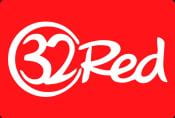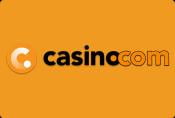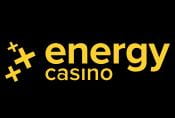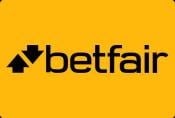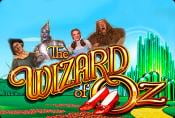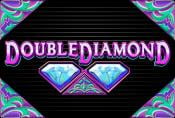Legal and illegal gambling in Denmark - profits and problems
Gambling in Denmark: the licensed types of land-based and online gambling in this country. Peculiarities of legalization of gambling games and development prospects of casino in the future.
Situation with gambling business and Danish gambling legislation is ambiguous. On the one hand, gambler's expectations from country, which overcame liberalism are very high. On the one hand Danish liberalism has nothing to do with regulation of services on market.
In the kingdom, gambling is allowed for both local and foreign operators. However, the latter must necessarily be partners of Danish companies. Most types of gambling are legalised, including slot machines.
Gambling online is officially regulated since 2010 and implies the obligatory possession of licenses for operators. Only such companies have the right to advertise their services, which include video slots. Despite the real money, slot machines provide the opportunity to play for virtual currency. Free slots can be blocked by ISPs, though it happens rarely. The reason usually implies a gambling deviation of slot machines, but it happens, that the reason for the ban is not disclosed.
Peculiarities of this country
Denmark – is small (the territory – 43 thousand sq.km, population – 5,7 million inhabitants), but economically and socially developed country (takes the fourth place in the world on an index of human growth). In practice it presupposes high level of life (Danes earn 30% more than an average person in the European Union) and different variants of spending time outside work (as far as average duration of business week in Denmark is 37,5 hours).
According to World Happiness Report Update 2016, Denmark is recognized to be the happiest country in the world. Organization for Economic Cooperation and Development in 2015 called it country with the smallest gap between rich and poor people.
History of legalization of gambling games in Denmark
Since 1948 in Denmark there was a state monopoly for all types of gambling games, it belonged to Danske Spil company. There was gambling law to allow slot machines, but they were not played on money. That is why it isn't a surprise that there were traditions of illegal gambling. Back in 70-80s there existed back-street bars, only checked people had an access to them. It is an interesting fact, that players didn't put lots of money on tables, they were playing on matches, pieces of paper, though there were payout tables according to which matches were exchanged on cash. Chances of illegal operators decreased in 1990 with legalization of official casinos.
Because of these changes foreign operators from Netherlands, Austria and Germany were allowed to work in Denmark. To get the license for gambling on Danish territory they must have undergone tender and have complied with strict requirements. In particular, foreign company had to create joint business with Danish resident. As a result, all opened casinos are based in hotels, that are partner organizations.
With the emergence of online institutions that offer games and bets, Danish legislators decided to fix this part of rapidly increasing market. In 2003 they forbade foreign companies to work in Denmark. As long as online operators are registered in countries with more liberal regulation of market, Danish banks received recommendations not to provide services for those credit cards, that are used for internet entertainments.
Legislative eagerness of Danes caused negative reaction from institutions of the European Union and its certain members, and in 2008 after Danish ratification of "Agreements on functioning of the European Union" it led to disagreement between European and local requirements.
In 2010, searching for compromise a new law was passed. It was to regulate gambling business and it came into force on January, 1st, 2012.
The most important change in gambling sphere was closing of Danske Spil company de jure and receipt of access to the local market by the foreign companies de facto. Denmark remains being the only operator of lottery, bingo, scratch cards, bets on pigeon races, horse races and dog races. Another types of gambling activities (online casinos, slots, bets) can be performed by private companies.
At the end of 2014 amendments to the law by Danish gambling authority were adopted. They set stricter rules about foreign operators. Firstly, operators and suppliers of gambling software should be tested and get Danish license. Secondly, foreign online casino operators should pay high taxes (20% of income).
Legal aspects of gambling games organization
The commercial organization of gambling games without the corresponding permission is illegal.
Casinos get licenses from Ministry of Justice. In Denmark there is a concept of gambling debt as "debt of honour" because there are no legal requirements for payout of debts from non-licensed games.
Since 2012 Danish Gambling Authority (Spillemyndigheden) is responsible for licensing of private and legal entities, who want to work on Danish gambling market.
Conditions of license receipt:
Reasonableness of company’s creation (activity should be viable and profitable).
Operator’s conformance to the requirements of age qualifications (not younger than 21) and should have no records of convictions.
Satisfactory commercial goodwill of the company.
According to Danish gambling association statement there should be payment of duties for organization of business. Online casino or bookmaker’s office will cost one DKK 250000 (USD 37000). Both types of activities together will cost DKK 350000 (USD 52000).
Price for license is from DKK 50000 (USD 74000) to DKK 1,5 million (USD 222000).
Organization of gambling games in public places without necessary license is punished by penalty charge or imprisonment for one and more years. If one provides a place for illegal gambling activities he has to pay penalty or be imprisoned for six months. Participation in gambling games is punished by penalty.
Licensed varieties of gambling games
The most popular gambling types in Denmark are (in order of descending of income in 2013 year):
- Lotteries. The total income from them was DKK 3,1 billion (USD 457 billion).
- Slot machines – DKK 1,63 billion (USD 240 million).
- Bets – DKK 1,39 billion (USD 146 million).
- Online casinos – DKK 990 million (USD 49,4 million).
- Land-based casinos – DKK 335 million (USD 49,4 million).
- Horseraces – DKK 135 million (USD 19,9 million).
The total amount of income from all types of regulated gambling games in 2013 was DKK 7,57 billion (USD 1,12 billion).
An interesting thing that sport poker isn’t considered to be gambling game in Denmark, that is why there is no need in license.
Poker, as gambling game, especially in online form has been popular in Denmark since beginning of 2000 year. The main reason for such popularity is success of Gustav Hansen, winner of World Series of Poker bracelet (WSOP), three-time winner of World Poker Tour (WPT), got prizes in the amount of USD 9 million for about 10 years. It isn’t surprise that big Denmark takes 25th place in WSOP rates.
There is no other information about poker’s income.
Lotteries in Denmark
The Danske Spil state-owned company was founded in 1948 under the name Dansk Tipstjeneste. The Danish government (which provided 80% of financial support), National Olympic Committee and Sports Confederation of Denmark (10%) and Danish Athletic Federation (10%) are founders of this organization.
In 2012 on its base two companies were created – Danske Lotteri Spil and Danske Licens Spil are created. The first is an operator of a lottery, the second covers sector of online games and rates.
Danske Lotteri Spil offers a traditional set of lotteries (Lotto, Eurojackpot, Keno), Quick scratch cards, Bingo lotto and accepts bets on Dantoto horseraces.
In Denmark there is one more national lottery which completely belongs to the state – Klasselotteriet. In the past it worked through dealer network, but since 2000 it became to be widely used as Danish gambling sites. Motto: "Lottery of millions in Denmark" shows that anyone can play and win prizes in this game. The ticket price depends on maximal possible prize (jackpot, half of jackpot, etc.).
Slot machines
In 2012 (before new law) there were 26000 classic slots and 3300 arcade-like machines. The yearly income in that year from slot machines was DKK 1,8 billion (USD 266 million). Just for comparison: gambling industry earned DKK 2 billion (USD 296 million).
Slot machines were placed in special places, most frequently in casinos.
Industry of rates
In general, the most popular are sports bets. The most widespread events are matches of national football league and English Premier league that are shown on Danish TV. Bets on golf (mostly because of Thomas Burn's success in 2000s), handball and badminton are accepted. In the next years the increase of rate size on cycle races is expected. It is connected not only with success of Danish racers, but also with Denmark's proposition to arrange opening stages of Tour de France on its territory.
Considerably smaller segment occupy rates on future events (financial, political and other). There are operators licensed for acceptance of rates on a fantasy sport (Star Fantasy League, Fanaments, TopBetta) though in sport books of other operators (for example, Bet365) such rates are offered too.
In this country work representative establishments of worlds' bookmaker's offices (Bet365, NetBet), but the Danske Licens Spil state operator is still the leader in this this sphere. The organization supports three platforms of rates: Oddset, eOddset and Tips.
Online casino
At that time when law was coming into effect in 2010 Danish residents could use services of 400 online casinos, some of them were created especially for Danes. As far as new rules presupposed existence of governmental license from Danish gambling authority dga, a lot of operators decided to legalize its activities. In the first year of this law operation Danish Gambling Authority granted 25 licenses. Among the first ones to get it were Bwin, Ladbrokes and 888. On the other hand, twice more websites (57) were put into the "black list" because they were without license.
Nowadays in the country there are 210 websites, almost all of them are in two languages (Danish and English), they accept bets in DKK, EUR, USD. A lot of them are specialized on providing casino services:
- Bet365
- Casino Cruise
- Dansk777 Casino.
Sometimes these websites lay emphasis on content for mobile devices (All Slots Mobile, Golden Riviera, 32Red Mobile).
State operator Danske Licens Spil supports such gaming services:
- Casino,
- Live Casino,
- Spillenjørnet,
- Zezam,
- Poker.
Land-based casinos
Such casinos were first ones to destabilize Danske Spil monopoly. Nowadays there are six official casinos in Denmark (Copenhagen, Vail, Odense, Aalborg, Aarhus and Helsingere) and one casino on Pearl Seaways ferry that makes trips from Copenhagen to Oslo. Casino in Copenhagen is considered to be the biggest gambling house in Northern Europe (30 thousand sq. m, 21 gambling tables and 180 slot machines). Its work is included into the Danish gambling authority annual report.
Land-based casinos offer such games as baccarat, Punto Banco, blackjack, poker and slots.
Casino’s work is carefully organized:
- Business hours: no more than 14 hours a day.
- Obligatory identification of clients, minors aren’t allowed to play gambling games.
- Users should have clients card.
- Paid admission. The maximal payment is DKK 95 (USD 14)
There are rules about personal appearance of clients, usage of audio and video devices. Police is always checking whether everyone complies with the rules. Casino are checked by Danish Gambling Authority on a regular basis.
Horseraces
In Denmark horse sport is quite developed and horseraces are made on 9 hippodromes (for example in Billunde, Bornholm, Klampenborge). Bets are accepted in advance or during the game itself (in-play bets).
The only operator of bets on horseraces in Denmark is state company Danske Lotteri Spil.
Governmental influence on gambling market
State monopoly was officially cancelled in 2010, though there are left lots of controlling and regulating functions of the state:
Licensing. Both private and state companies have to be licensed and to pay Danish gambling tax. It is interesting to note that state operator Danske Spil has to get annual license, and the number of games is limited.
Advertising regulation. Only licensed operator has a right to advertise its products and it shouldn’t use help of third parties in this question. It is forbidden to use photos of celebrities in ads. Players should get information which will help them to estimate chances to win.
Control of financial activities. Original inspection is made when license is being issued, though it can be made any time. It is necessary to add that Denmark has high taxes on gambling services. Operators pay two taxes. First of them is for cash profit (progressive for land-based casinos – 45% from first DKK 4 million (USD 590000) and 75% for the left amount) or proportional for online casinos (20%). The second one is corporate tax of 25% from amount, that is left after payment for tax on income.
Disposition of funds, received from issuance of license and taxation. As a rule, finances are used for cultural and sports support programs.
Despite the legal demonopolization of Denmark’s gambling market, numbers show, that there are more state-owned operators that private ones. According to the information for 2013 we can see such situation:
- Danske Lotteri Spil occupies 34,8% of market
- Slot machines – 21,5%
- Bets – 18,3%
- Online casinos – 13,1%
- Other lotteries – 4,7%
- Land-based casinos – 4,4%
- Klasselotteriet lottery – 3,2%
Taking into consideration the state-owned companies, that operate slot machines, bets and online casinos, the total part of state here is about 62%.
ROFUS
Danish Gambling Authority in order to help in fighting against gambling addiction created special register of self-excluded persons (ROFUS). They can also be included into the Danish gambling authority blacklist. It is made for Danish people, who decided to exclude themselves from gambling games. Registration is done voluntary.
Registered person is automatically forbidden to take part in online games or place bets in places that are controlled by licensed operators. There are two forms of participation: temporary self-exclusion and permanent one. The first variant allows player to choose the period for self-exclusion, after which gambler can take part in gambling activities again.
Permanently self-excluded person is forbidden to play games for one year. After this term he can send special written petition to Management on exclusion from register. As for 2014 there were 3,5 thousand persons in this register.
Future of gambling business in Denmark
The expected amount of income in 2016 from all types of gambling games is DKK 9 billion (USD 1,33 billion) or DKK 2000 (USD 295) per each adult in Denmark. The period of law operation Danish market showed slow but steady development. This tendency will be in action in future if rules of gambling business regulation don't change.
The last innovation, that came into force in 2014 caused a wave of critics from the side of European partners, therefore a change of legislative norms is quite possible.

